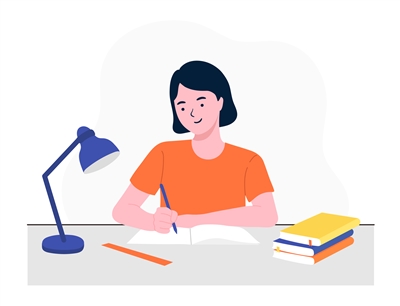Five techniques to help students reach their full potential

Those students who go on to achieve the highest grades are not necessarily the most intelligent in their peer group. Possessing a precocious IQ is no guarantor of achieving the top mark. The whole system of testing and grading students might be about sorting students into categories of intelligence and aptitude, but students must put in effort, and ensure they study the syllabus thoroughly, if they are to receive a grade that reflects their true potential.
Here are five techniques students can employ to ensure they perform to their best ability during exams.
1. Don`t put off dealing with difficult topics
Identify the areas you are weakest in, and work to improve them. This point cannot be overestimated, for we all have a natural tendency to shy away from areas of difficulty, and instead focus on things we are more comfortable with. When it comes to study, this can mean students neglect to spend time working through certain topics they don`t fully understand, and instead go over and revise areas they find more congenial.
Be honest with yourself - write a list of the areas of each subject that you are struggling with, and make those categories a priority. Once you give these points your full attention, you will likely find many of the difficulties not so intractable as you first thought.
2. Ask questions
Following on from the last point, once you have created a list of those topics needing the most attention, you should not be afraid to ask for help. Shortening that list should be your aim, and many hands make light work. Your teacher will be able to help you here, but you could seek out online resources as well. The internet is a treasure trove useful information, and there will likely be many educational articles and videos out there which present the information in a way that`s instructive and helpful to you. Whichever part of the course you are struggling with, there will certainly be many other students who have also found the same topics difficult, and there will be many online resources offering help.
3. Don`t rely upon revision to get you through exams
I`m sure everyone has heard of cramming. This is a technique employed by students who wish to assimilate as much information as possible just before their exam. The somewhat misguided philosophy behind this is that if you learn a piece of information just a few days (or hours) before your exam, you are more likely to retain it, as it will still be fresh in your mind. The truth however is that these extended study sessions - which can last 12 hours or more, and are usually fuelled by copious amounts of caffeine (and very often other pharmaceuticals) - generally cause students to switch off mentally, leading to a mere veneer of learning.
Study and revision should take place throughout the year, and at a more sedate pace. Certainly students should devise a revision plan in the lead up to an exam, but if they tackle difficult topics when they arise, they won`t have so much work to get through in the lead up to their test.
4. create a good study area at home
Of course not everyone has the luxury of a dedicated study room at home, but an area congenial to learning can easily be created. Ideally this place should be free from as many distractions as possible - and for this reason the bedroom may not be an ideal location. You will obviously need a suitable working `desk area,` and a spot where you can keep any textbooks and stationary.
Don`t worry if you live in a busy household where space is limited, for your study area need not be a permanent fixture. All you require is a space that can be made into a work-spot when you need it. Any books and stationery could be kept in a suitable container nearby, ready to be put into use when you sit down to work.
5. Don`t have fixed ideas about your abilities
Try to discard the notion that you are better at one subject than another - that because you have never been particularly good at a certain subject, you cannot possibly excel in it. The purpose of education is to change our abilities, and to develop our minds.
It`s easy to entrap ourselves in our own narratives - to convince ourselves that we will `never be good at maths` or that learning a foreign language is `beyond our abilities.` By believing these things about ourselves we will make them come true, and limit our own development.

 Add a Comment
Add a Comment